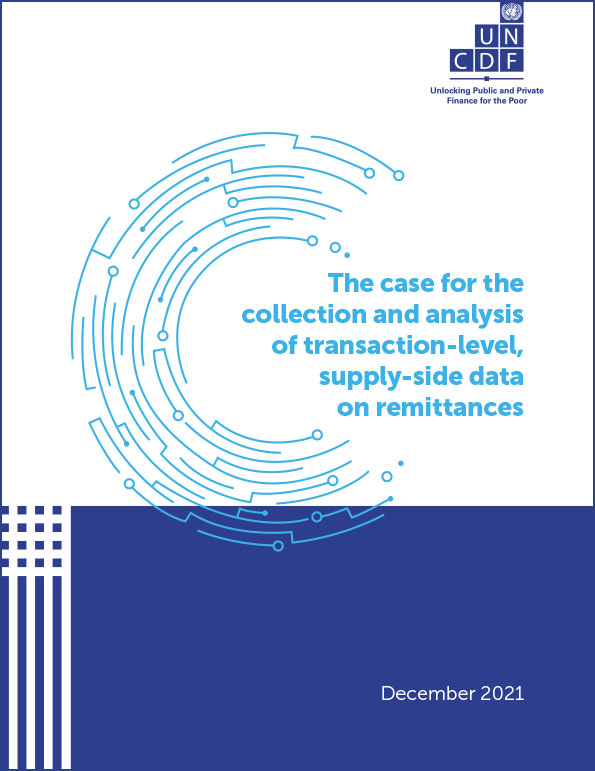To understand remittance markets better, United Nations Capital Development Fund (UNCDF) has consulted with more than fifty central banks and ten technology providers to improve the collection and measurement of cross-border remittances for informing policymaking, product development, and investment. One way to strengthen the policies and processes that facilitate the collection of frequent, accurate remittance data and understanding of remittance markets is to leverage technology to build systems that help collect, monitor, and analyze granular remittance data and drive efficiency and sustainability, reducing costs and improving overall efficiency.
The three webinars on 7, 8 and 9 June covered the following topics:
- 7 June session: Lessons learned on building an international transaction reporting system to collect remittance data: experiences across central bank
- 8 June session: Why do central banks, authorities, and the industry need high-quality granular remittances data? (The case for the collection and analysis of transaction-level, supply-side data on remittances)
- 9 June session: Leverage technology to capture the full potential of remittance system-generated data
Agenda
- Opening remarks and introduction to UNCDF
- Presentation of UNCDF’s paper on the case for the collection and analysis of transaction-level, supply-side data on remittances
- Examples of central banks in countries collecting data with a policy use case:
- Remittances recipient country: the case of Banco de Mexico
- Remittances sender country: the case of South African Reserve Bank
- Central Bank of Spain’s experience in compiling cross-border remittances data
- Experiences from a Remittances Service Provider: Terrapay
- Q&A
- Closing remarks
Speakers
Moderators

Paloma Monroy
Technical Specialist
Migration and Remittances
UNCDF
Paloma Monroy is a Migration and Remittances Specialist and leads the work on international transaction reporting and analysis systems for the UNCDF migration and remittances portfolio. In particular, for improving the quality of disaggregated remittances data to support evidence-based policymaking and for systematic reviews of policies, laws and regulations that limit remittances ecosystems and women’s and males’ economic activity. Her work experience fostering transparency, safety, reliability, and efficiency spans more than 20 international payments and remittances markets.

Dr. Robin Gravesteijn
Lead Systems and Research
Migration and Remittances
UNCDF
Robin Gravesteijn leads the data analytics and research work on digital finance and inclusive economies at UNCDF, with a focus on Asia and the global effort around migration and remittances. His other areas of work include decent work and entrepreneurship, digital finance for clean energy, and women and youth empowerment. The facility in Asia offers (big) data analytics technical support for financial and remittance service providers as well as central banks. With more than 16 years of working experience in development finance, Dr. Gravesteijn has managed social performance assessment and monitoring systems for the impact investment fund Oikocredit, and has worked for the International Labour Office conducting impact evaluations, offering technical support for financial service providers in Central Asia launching loan programs for women-owned businesses and small and medium enterprises. Prior to that, Dr. Gravesteijn worked in the commercial banking sector and at the Rabobank Foundation. He received his doctorate in social and policy sciences from the University of Bath (UK), and has a master’s degree in development studies (cum laude) and economics from Utrecht University (the Netherlands).
Panelists
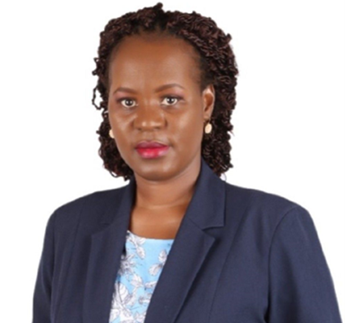
Constance Libusha
Senior Business System Analyst
Financial Surveillance Department
South African Reserve Bank
Constance Libusha is a Senior Business Systems Analyst in the Financial Surveillance of the South African Reserve Bank.
She has more than 18 years of experience in the financial services industry, with the last three years spent in central banking. Her main focus is in leading the maintenance of the cross-border transactions reporting system used in the Financial Surveillance Department of the SARB. She is also the project lead of the project team responsible for implementation of the core reporting system in SADC member states, and is currently leading a team working with the SADC member states in the implementation of the SADC harmonization of Exchange Control Balance of Payment (BOP) codes.
Constance is currently an MBA candidate at Wits Business School, and holds an MDP from GIBS, a B. Com honours degree in Economics from UNISA, National Diploma in Information Technology, and various post-graduate qualifications in business analysis.
She loves to travel with her husband and her two children, and has a personal goal to travel each year to a place she has not yet been.
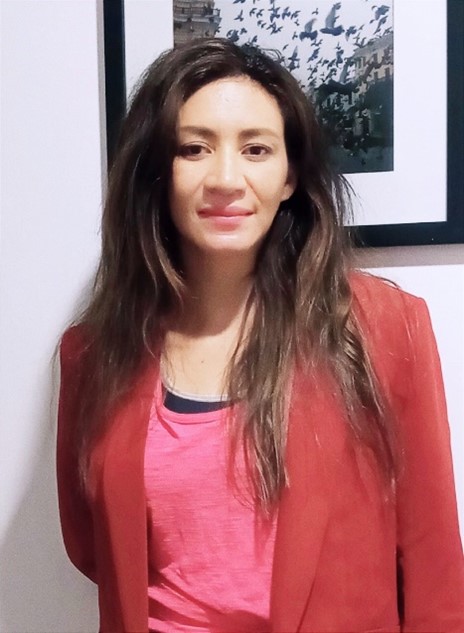
Lizbeth Leyva
Manager
Sector Analysis and Measurement Division,
Banco de Mexico

Teresa Garcia Cid
Manager
External Current and Capital Account Unit
Banco de España
Teresa Garcia Cid has a degree in economic and business sciences from Universidad Complutense de Madrid, specializing in Monetary Policy and Public Sector. Working at Banco de España since 1995, she is currently the Manager for the External Current and Capital Account Unit of the Balance of Payments and Financial Accounts Division in the Statistics Department of the Banco de España.
The Unit is responsible for:
• The compilation of the Current and capital account of the Balance of Payments and of the International Trade in Services Statistics
• The data quality management and dissemination of International Investment Position and Balance of Payments products (data sending to international organizations and national publications, web, press releases, etc.)
• The production and dissemination of competitiveness indexes and the dissemination of rates of exchange
This responsibility entails close collaboration with several national and international agencies and organizations. At the national level, the cooperation is especially important with the National Statistics Office, in particular with the National Accounts Department (in order to guarantee full NA and BOP coherence). At the international level, they have an active participation in several working groups (Balance of Payments Working Group and Travel Workshop in the scope of EUROSTAT, Exchange of Confidential Information under the umbrella of the CMFB or the Working Party on Trade in Goods and Services of the OECD, for instance). In the area of remittances, in particular, they closely cooperate with CEMLA (Latin America and Caribe Central Banks Association) in annual meetings, and continue to work with main counterpart countries.
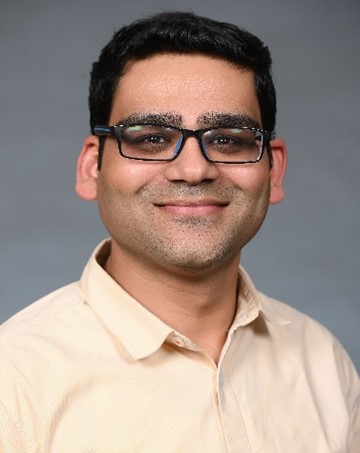
Saransh Verma
Director–Analytics,
TerraPay
Saransh serves as the Director of Analytics at TerraPay. In this role, he is engaged in building TerraPay’s analytics capabilities that enable smarter data-driven decision-making, improved across-the-board collaborations and the organisation’s growth.
Saransh has been part of TerraPay since its inception and has worked in various roles and functions such as ideation, market research, acquisition, and compliance aspects while building the foundation for TerraPay’s launch.
From 2016–2021, Saransh established and led the Business Operations functions at TerraPay. He also serves as a Director on the Board of TerraPay Solutions India Private Limited.
Event Media
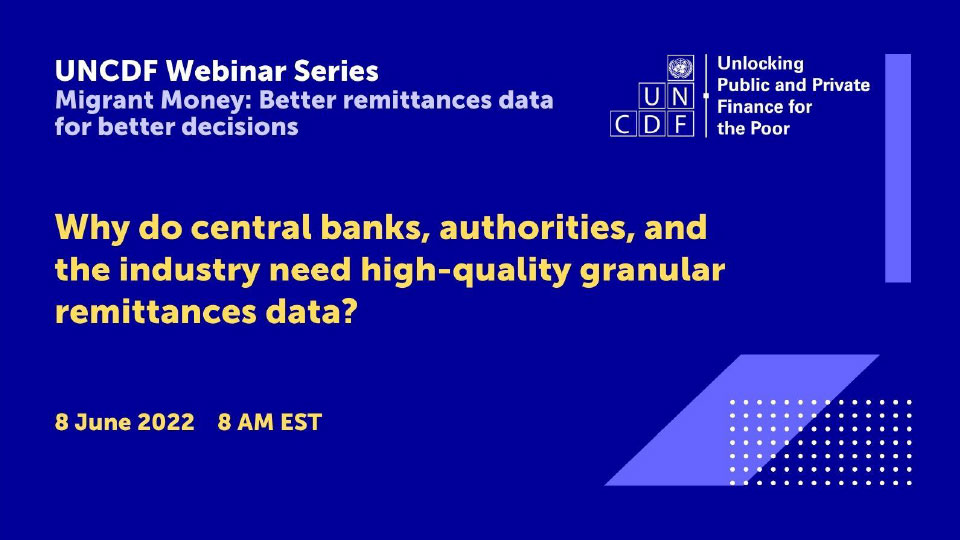
Presentation Deck
